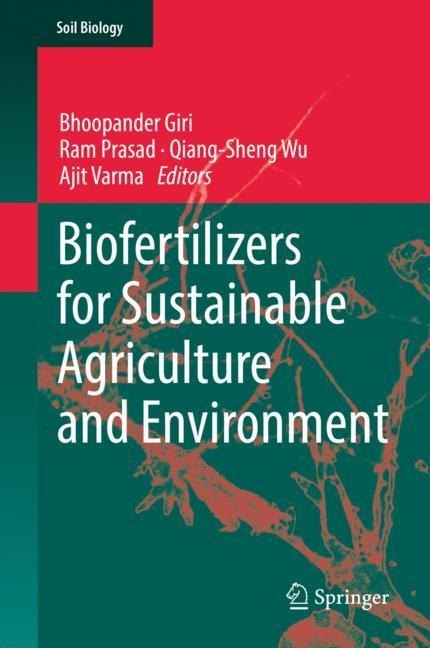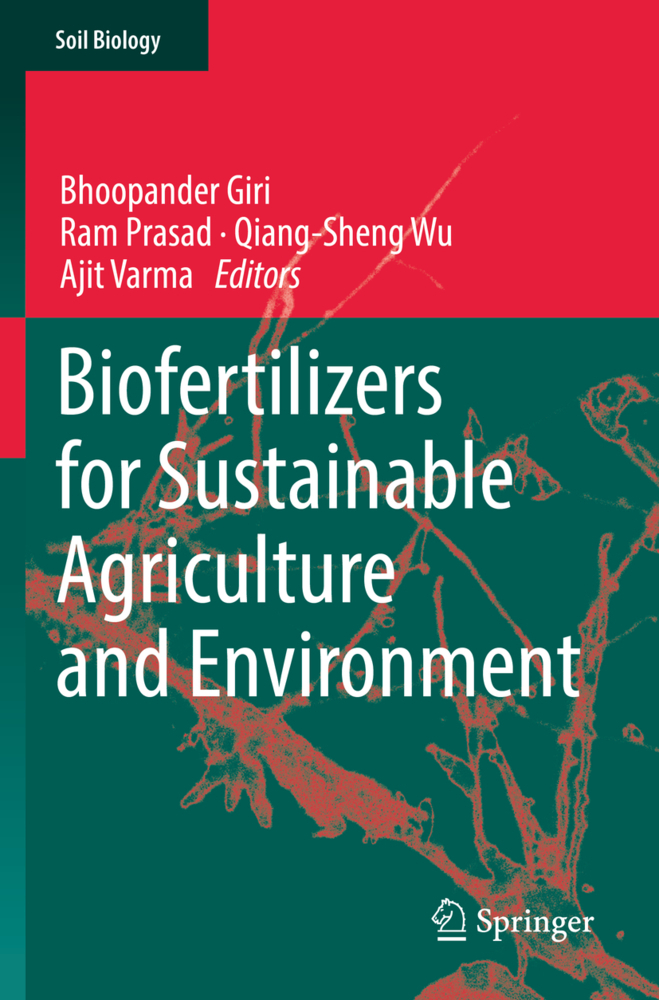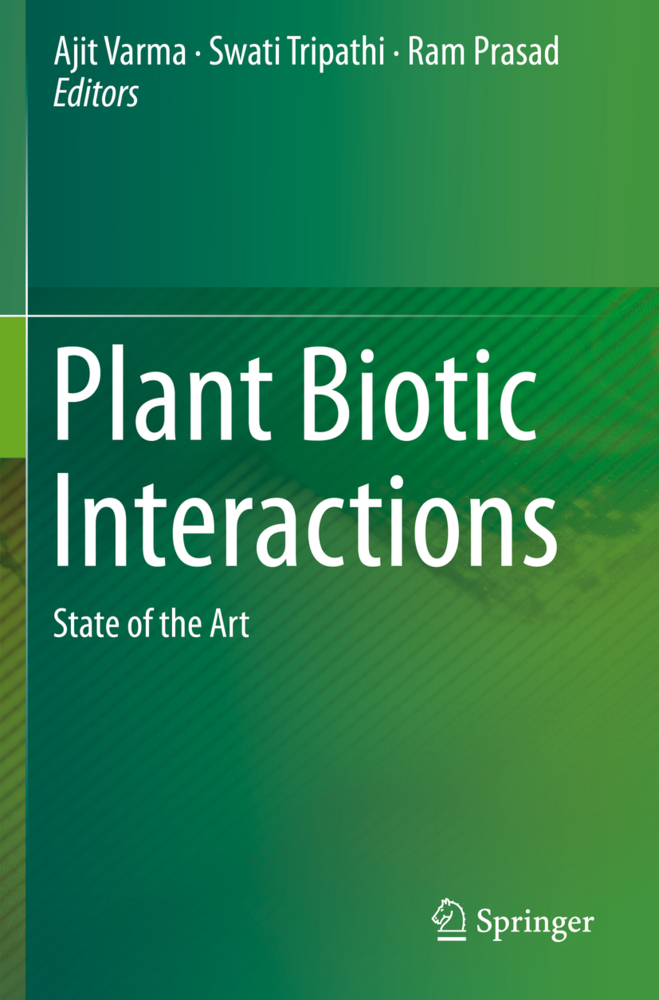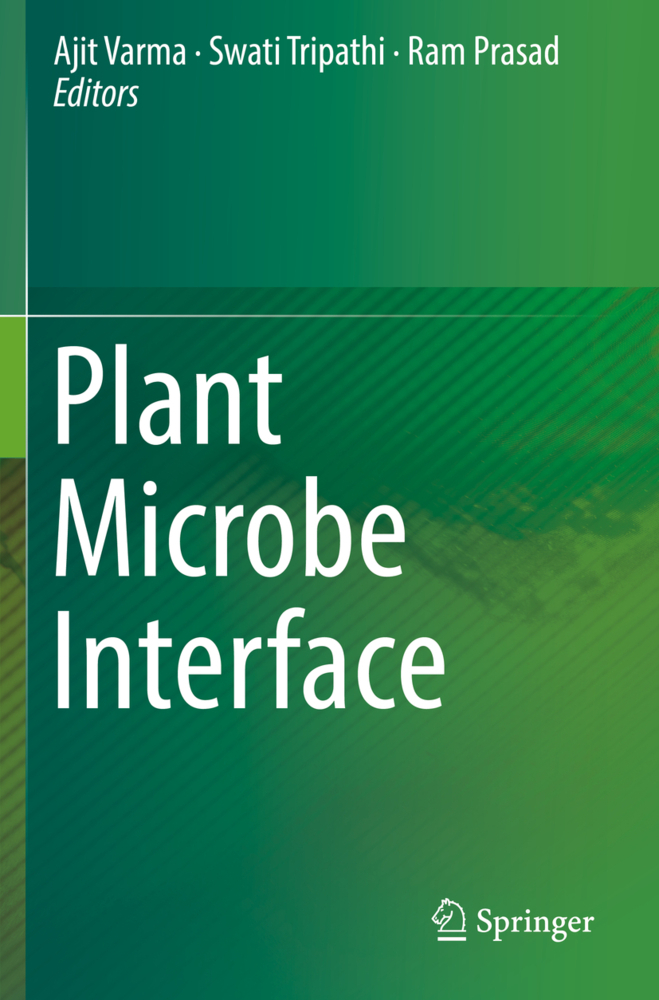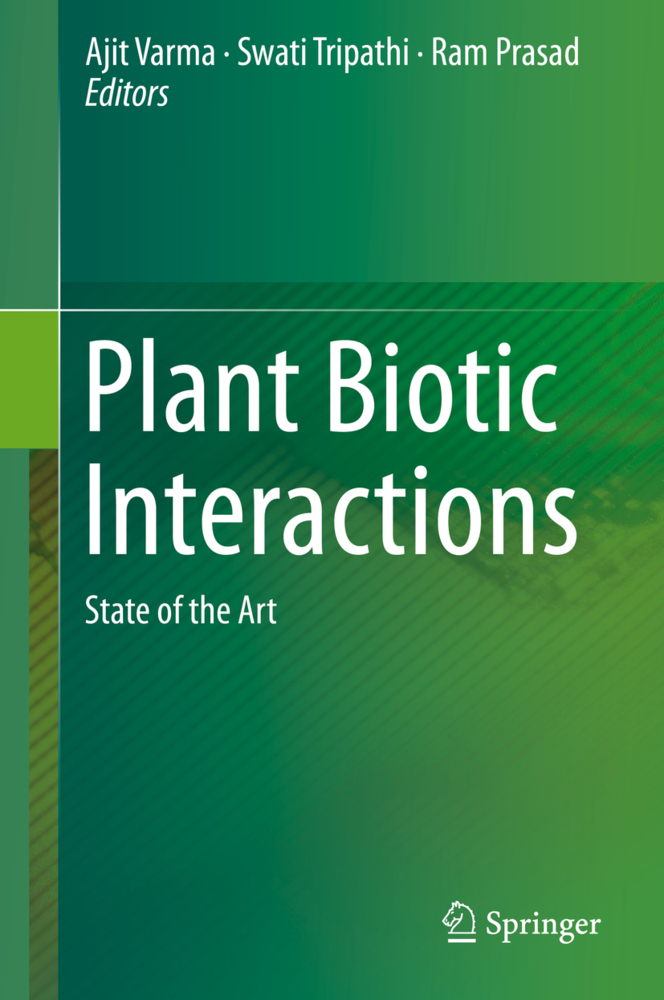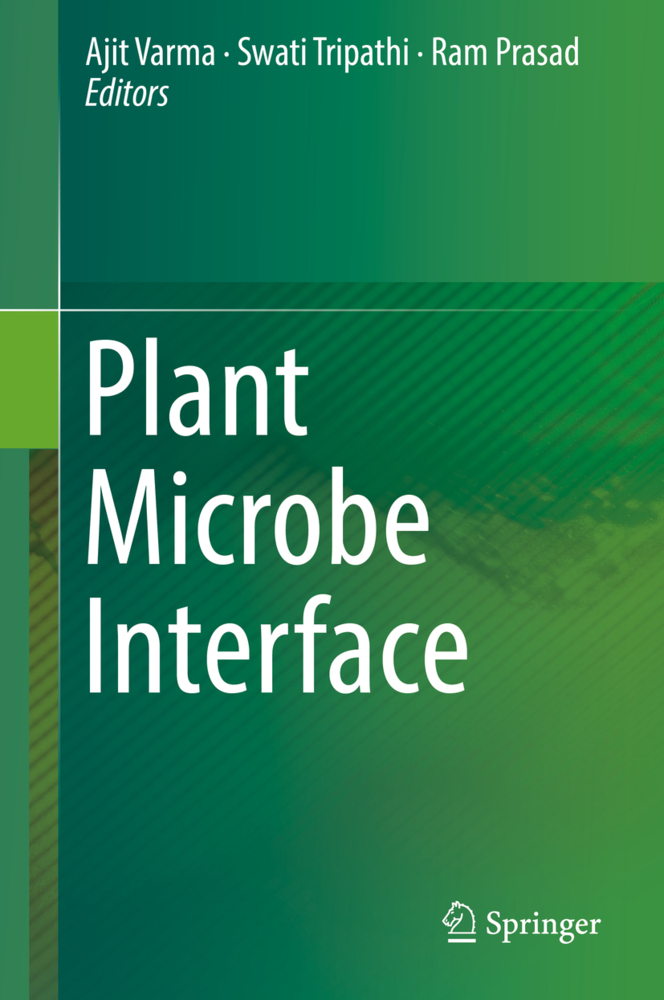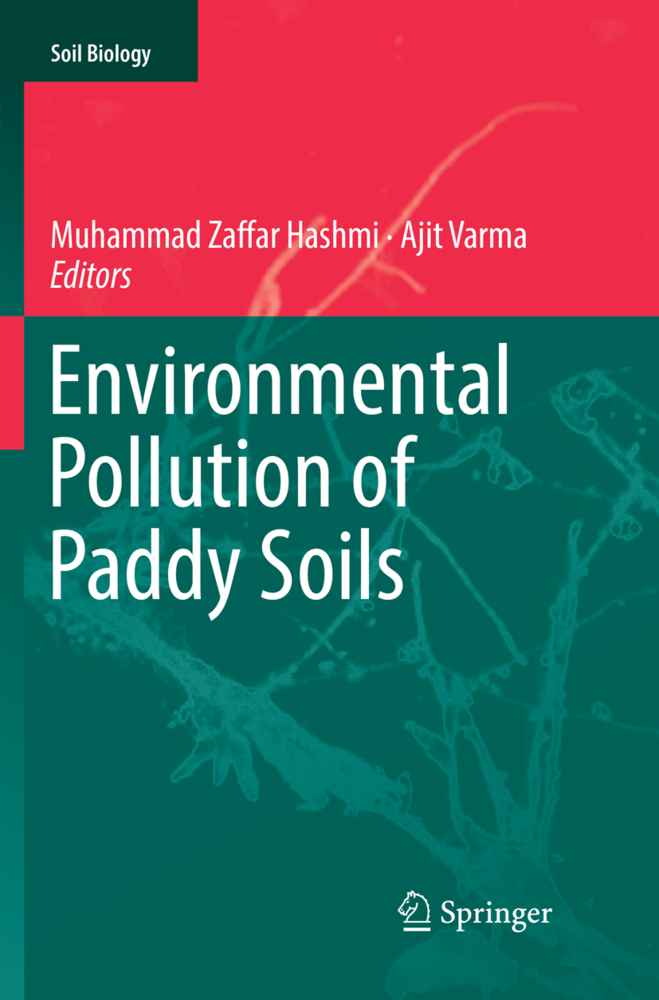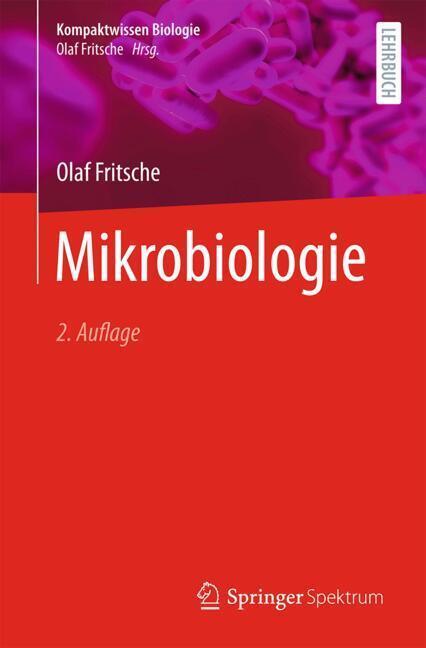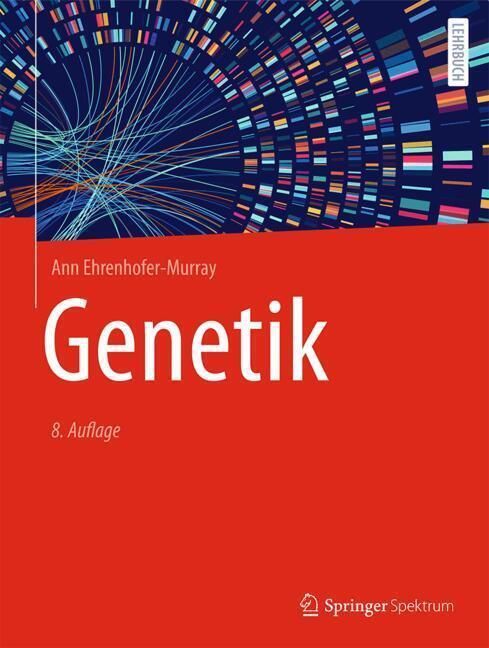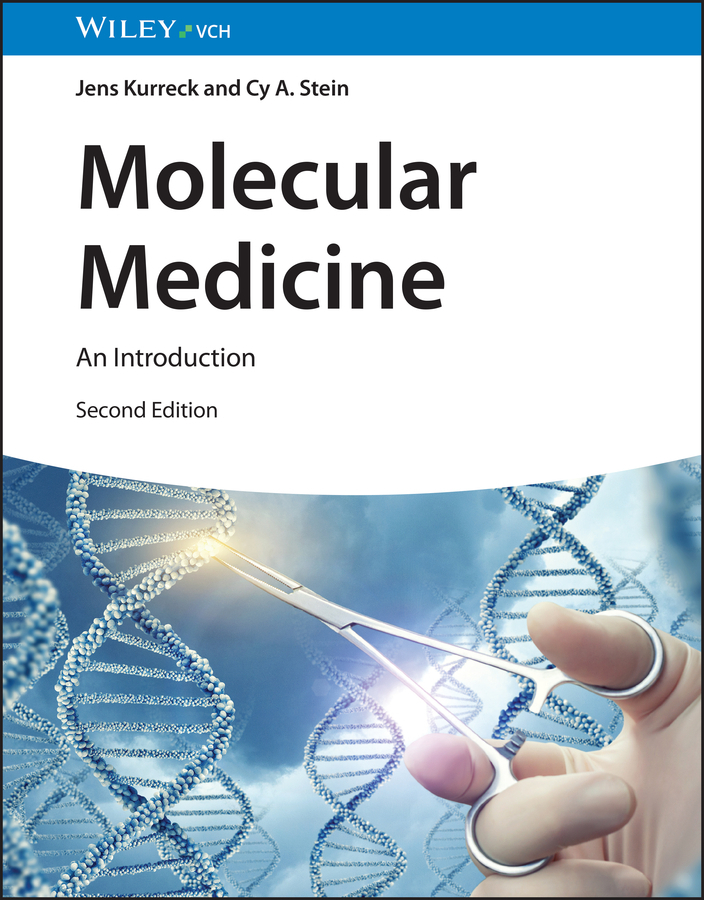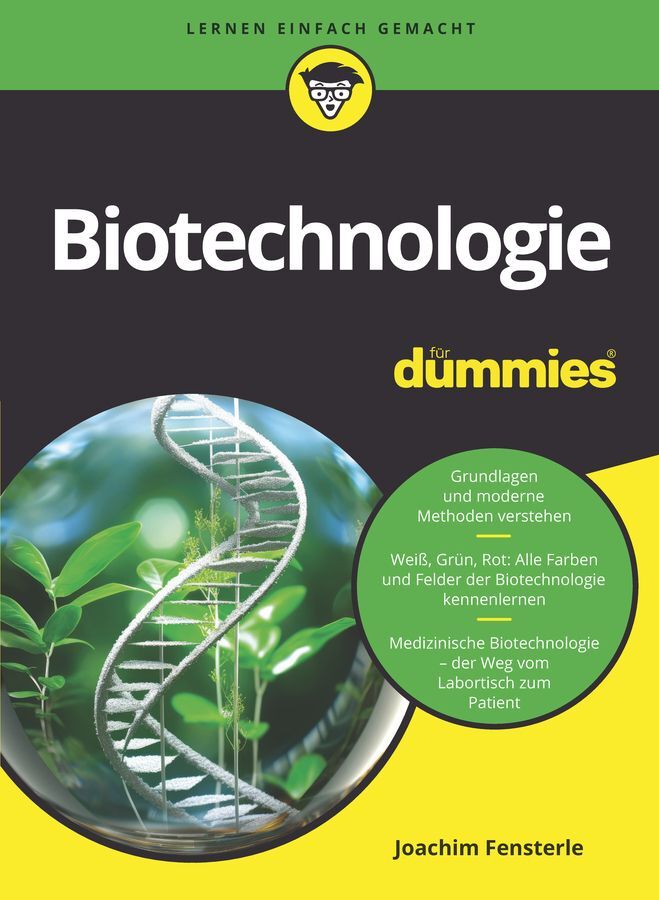Biofertilizers for Sustainable Agriculture and Environment
This book provides a comprehensive overview of the benefits of biofertilizers as an alternative to chemical fertilizers and pesticides.
Agricultural production has increased massively over the last century due to increased use of chemical fertilizers and pesticides, but these gains have come at a price. The chemicals are not only expensive; they also reduce microbial activity in agricultural soils and accumulate in the food chain, with potentially harmful effects for humans. Accordingly, it is high time to explore alternatives and to find solutions to overcome our increasing dependence on these chemicals.
Biofertilizers, which consist of plant remains, organic matter and microorganisms, might offer an alternative. They are natural, organic, biodegradable, eco-friendly and cost-effective. Further, the microbes present in the biofertilizers are important, because they produce nutrients required for plant growth (e.g., nitrogen, phosphorus, potassium), as well as substances essential for plant growth and development (e.g., auxins and cytokinins). Biofertilizers also improve the physical properties, fertility and productivity of soil, reducing the need for chemical fertilizers while maintaining high crop yield. This makes biofertilizers a powerful tool for sustainable agriculture and a sustainable environment.
The book covers the latest research on biofertilizers, ranging from beneficial fungal, bacterial and algal inoculants; to microbes for bioremediation, wastewater treatment; and recycling of biodegradable municipal, agricultural and industrial waste; as well as biocontrol agents and bio-pesticides. As such, it offers a valuable resource for researchers, academics and students in the broad fields of microbiology and agriculture.
Dr. Bhoopander Giri : Received his Ph.D in Mycorrhizal Research from the Department of Botany, University of Delhi in 2001. Dr Giri has worked as a post-doctoral fellow at the Department of Plant Pathology, North Carolina State University, USA and is currently working as an Assistant Professor at the Department of Botany, Swami Shraddhanand College, University of Delhi, Delhi. He is a recipient of CSIR Research Associateship (2003), DST Young Scientist Fellowship (2005) and Raman Post-Doctoral Fellowship. He has served as a General Secretary (from 2013-2015) for International Symbiosis Society (ISS), USA. Dr. Giri is a life-member/member of many prestigious academic societies. Besides, he serves as a reviewer for several international and national journals, including Experimental and Environmental Botany, Planta, Applied Soil Ecology, Journal of Plant Growth Regulation, Agroforestry System, Colloids and Surfaces B: Biointerfaces, Scientia Horticulture, Acta Physiologia Plantarum, Spanish Journal of Agricultural Research, Journal of Experimental Botany, Institute for Life Long Learning (ILLL), University of Delhi (e-content) and UGC-CEC (pre-view subject expert). Dr. Giri has published more than 38 papers in the national and international peer-reviewed journals and books. His paper 'Arbuscular mycorrhizal fungi in alleviation of salt stress' published in Annals of Botany Oxford Press, UK has been listed among TOP 10 cited publications (from 2009-2014) in the area of Biological Science and Agriculture by International Comparative Performance of India's Research Base, Department of Science and Technology Report 2015, India. He has presented research papers in several national and international conferences (Switzerland, Canada and USA etc) and also served as organizing secretary. Dr. Giri has edited a book 'Root Biology' published by Springer International Publishing AG.
Dr. Ram Prasad : Associated with Amity Institute of Microbial Technology, Amity University, Uttar Pradesh, India since 2005. His research interest includes plant-microbe-interactions, sustainable agriculture and microbial nanobiotechnology. Dr. Prasad has more than hundred publications to his credit, including research paper
Agricultural production has increased massively over the last century due to increased use of chemical fertilizers and pesticides, but these gains have come at a price. The chemicals are not only expensive; they also reduce microbial activity in agricultural soils and accumulate in the food chain, with potentially harmful effects for humans. Accordingly, it is high time to explore alternatives and to find solutions to overcome our increasing dependence on these chemicals.
Biofertilizers, which consist of plant remains, organic matter and microorganisms, might offer an alternative. They are natural, organic, biodegradable, eco-friendly and cost-effective. Further, the microbes present in the biofertilizers are important, because they produce nutrients required for plant growth (e.g., nitrogen, phosphorus, potassium), as well as substances essential for plant growth and development (e.g., auxins and cytokinins). Biofertilizers also improve the physical properties, fertility and productivity of soil, reducing the need for chemical fertilizers while maintaining high crop yield. This makes biofertilizers a powerful tool for sustainable agriculture and a sustainable environment.
The book covers the latest research on biofertilizers, ranging from beneficial fungal, bacterial and algal inoculants; to microbes for bioremediation, wastewater treatment; and recycling of biodegradable municipal, agricultural and industrial waste; as well as biocontrol agents and bio-pesticides. As such, it offers a valuable resource for researchers, academics and students in the broad fields of microbiology and agriculture.
Dr. Bhoopander Giri : Received his Ph.D in Mycorrhizal Research from the Department of Botany, University of Delhi in 2001. Dr Giri has worked as a post-doctoral fellow at the Department of Plant Pathology, North Carolina State University, USA and is currently working as an Assistant Professor at the Department of Botany, Swami Shraddhanand College, University of Delhi, Delhi. He is a recipient of CSIR Research Associateship (2003), DST Young Scientist Fellowship (2005) and Raman Post-Doctoral Fellowship. He has served as a General Secretary (from 2013-2015) for International Symbiosis Society (ISS), USA. Dr. Giri is a life-member/member of many prestigious academic societies. Besides, he serves as a reviewer for several international and national journals, including Experimental and Environmental Botany, Planta, Applied Soil Ecology, Journal of Plant Growth Regulation, Agroforestry System, Colloids and Surfaces B: Biointerfaces, Scientia Horticulture, Acta Physiologia Plantarum, Spanish Journal of Agricultural Research, Journal of Experimental Botany, Institute for Life Long Learning (ILLL), University of Delhi (e-content) and UGC-CEC (pre-view subject expert). Dr. Giri has published more than 38 papers in the national and international peer-reviewed journals and books. His paper 'Arbuscular mycorrhizal fungi in alleviation of salt stress' published in Annals of Botany Oxford Press, UK has been listed among TOP 10 cited publications (from 2009-2014) in the area of Biological Science and Agriculture by International Comparative Performance of India's Research Base, Department of Science and Technology Report 2015, India. He has presented research papers in several national and international conferences (Switzerland, Canada and USA etc) and also served as organizing secretary. Dr. Giri has edited a book 'Root Biology' published by Springer International Publishing AG.
Dr. Ram Prasad : Associated with Amity Institute of Microbial Technology, Amity University, Uttar Pradesh, India since 2005. His research interest includes plant-microbe-interactions, sustainable agriculture and microbial nanobiotechnology. Dr. Prasad has more than hundred publications to his credit, including research paper
Giri, Bhoopander
Prasad, Ram
Wu, Qiang-Sheng
Varma, Ajit
| ISBN | 9783030189334 |
|---|---|
| Artikelnummer | 9783030189334 |
| Medientyp | E-Book - PDF |
| Copyrightjahr | 2019 |
| Verlag | Springer-Verlag |
| Umfang | 544 Seiten |
| Sprache | Englisch |
| Kopierschutz | Digitales Wasserzeichen |

